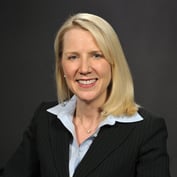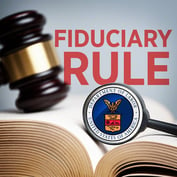Working with a retirement planner can be a challenging process for many clients. After all, this is a relationship that requires a lot of trust on both parts, and a great deal of financial candor from the customer. Scott Hanson, a certified financial planner with Hanson McClain Advisors in Sacramento, shares his thoughts on how a retirement planner can best explain their role, foster mutual trust, and make the relationship work to best advantage. As Hanson notes, the greatest benefits you may provide as a retirement planner are the financial mistakes you help a client avoid.

Q: How would you advise that a first meeting should go between a retirement planner and a potential customer, and what should be covered in that conversation?
Hanson: The first meeting is all about establishing a relationship. Does the customer believe the advisor to be honest, competent, trustworthy and likeable? Does the advisor believe the customer to be forthcoming and honest? The meeting will contain discussions that are both quantitative, such as assets, liabilities, etc.; but also qualitative, such as financial goals, objectives, risks, concerns, etc.
The only areas that a financial planner should not get involved in are interpersonal issues within a family. Otherwise a good financial planner really needs to understand the client – understand them emotionally; what drives them; what makes them tick; what types of risk policies they have. The better a financial planner can get to know their client the better advising they can do for them.
Q: How should a retirement planner best describe their role and outline their duties to a new or potential customer?
Hanson: A retirement planner should be one that helps a customer accomplish his or her objectives. The retirement planners duties include determining appropriate savings levels, how to best allocate investments, which savings vehicles to use, etc. In addition, a retirement planner should set expectations such as how often they will meet, what their role is, etc.
A quality financial planner will address any areas that pertain to a person’s financial life, whether it happens to do with their retirement plan, work, or savings that they have. They will also take into consideration any other investments the individual might own, including real estate. They will address debt situations, such as does it make sense for the person to pay off a mortgage; or, are there other consumer debts out there such as auto loans that need to be taken into consideration? They should also take into consideration risk reduction, liability insurance, umbrella policies – anything that would impact a person’s financial life.
Q: How should a retirement planner best explain to a potential customer the advantage of having their services?
Hanson: A good retirement planner should be able to communicate to a customer:
- What it is they provide (retirement projections, etc.)
- Why this will help an individual
- What the ultimate benefit to the customer is
Explain to the customer (or potential customer) that one of the greatest advantages an individual can have working with the financial planner is that there are areas of their financial life that they are no doubt unaware of. In other words, they don’t know the questions to ask.
Sure, a customer can go online and get any information they want; information that is available to all. But it’s not just information the customer needs. Sometimes it’s knowledge, and wisdom, and advice. Explain to the customer that they will benefit from working with you by not just getting information on the options for their 401(k) or the options for their retirement; but how all these things work together; plus some good advice on what steps the person can take to best prepare for retirement.
Q: What can a retirement planner say to a customer that will help make the job of working with them as easy as possible?
Hanson: I think the financial planner should start by stressing the need of the customer to provide accurate information and to fully disclose everything in their financial life. Sometimes people have made mistakes with their finances that they don’t want to share with somebody else. We all make mistakes with our finances. We have things that we are embarrassed about or ashamed of. When an individual chooses not to relay some of that information to an advisor they’re not setting themselves up in the best position possible for that financial advisor relationship. The more transparent they can be with the advisor, the better job the advisor can do for them.
Q: How deep into a person’s financial history should a retirement planner go?
Hanson: In today’s environment, I think it is important for the advisor to at least have a good understanding of how a client has reacted in the last several years given what has happened in the economy. There are a lot of tools out there designed to judge someone’s risk looking at what a person has done, how they have actually reacted. I think you can learn a lot about an individual.
Q: What are the “need to know” things that a retirement planner should convey to a potential customer?
Hanson: Two items:
- How much should be saved on a regular basis.
- How much can be spent.
Just like in healthcare, for a person to be thin, the real focus is on moving more and eating less. In retirement planning, it’s about saving more and spending less.








 November 14, 2013 at 02:00 AM
November 14, 2013 at 02:00 AM










